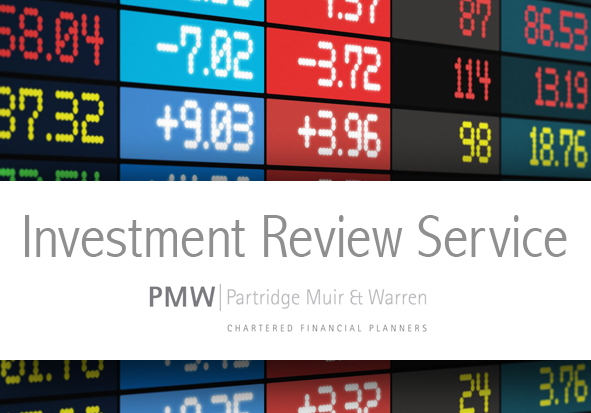FINANCE
Surrey’s Premier Lifestyle Magazine
Financial outlook for 2017
Simon Lewis believes that 2017 is likely to be an eventful year for both the global economy and global financial markets. The changes that are likely to take hold will have a profound effect on many investors.

I am usually reluctant to make predictions and to do so might be considered a particularly precarious endeavour at a time of such uncertainty. Nevertheless, it is important for us to have a view of the world in order to shape both our investment and financial planning policy, so I am happy to share with you our current thoughts.
Change is coming
In many ways, 2017 could be the year that has been too long in coming. It will mark the beginning of the end for a world that has become unduly dependent upon the monetary policy of central banks. We have now endured over 8 years of financial engineering in the aftermath of the global financial crisis and, whilst there is good evidence that the first 4 or 5 years of monetary policy stimulus was necessary, it has probably now gone too far. It is all too easy to blame central bankers, but the reason they have been required to continue to act is that governments have generally failed to take the necessary measures to reform economies, encourage productivity gains and generate genuine economic growth.
The absurdity of the current situation is illustrated by the fact that until recently, there was very little additional reward for investors prepared to lend money to both governments and business for the long term as opposed to the short term. This of course does not make sense. For example, Europe issued €242 billion worth of new bonds in 2016 that had an interest rate of zero. We are not just talking about government debt here; big companies such as Unilever and Sanofi have issued bonds with an interest rate of zero. Who would invest for a zero return? The answer of course is a central bank spending money that it has conjured up.
But too many rabbits have now been pulled from the hat. For example, it has recently been forecast that by the end of 2017 the Bank of Japan will own 50% of all Japanese bonds issued and will be the largest shareholder in 55 blue-chip companies; paid for with ‘funny’ money.
The change in direction for the US economy that will follow Trump’s policy of fiscal expansion (he’s planning to spend a lot of money) is likely to put some of these unhealthy trends into reverse, altering the fundamental attractions and risk of most classes of investment.
Inflation
The impact of sterling's post referendum devaluation is inflationary and has not yet fully fed through. Furthermore, it is likely the oil price will recover a little because the OPEC countries seem likely to agree a cut in production to reduce the current glut of global oil and support prices. UK CPI could be 4% or more by the end of 2017.
Sterling
The pound fell heavily in the aftermath of the EU referendum as a consequence of the uncertainly that now exists regarding the terms of the UK’s trading relations with the rest of the world. Nevertheless, it appears that the fall was a little ‘overdone’, particularly in relation to the US dollar. I expect sterling to remain volatile as sentiment inevitably swings with each new revelation from the forthcoming Article 50 negotiations. However, overall I think it will strengthen and I predict that it will recover to $1.35 by the end of the year.
Change is coming
In many ways, 2017 could be the year that has been too long in coming. It will mark the beginning of the end for a world that has become unduly dependent upon the monetary policy of central banks. We have now endured over 8 years of financial engineering in the aftermath of the global financial crisis and, whilst there is good evidence that the first 4 or 5 years of monetary policy stimulus was necessary, it has probably now gone too far. It is all too easy to blame central bankers, but the reason they have been required to continue to act is that governments have generally failed to take the necessary measures to reform economies, encourage productivity gains and generate genuine economic growth.
The absurdity of the current situation is illustrated by the fact that until recently, there was very little additional reward for investors prepared to lend money to both governments and business for the long term as opposed to the short term. This of course does not make sense. For example, Europe issued €242 billion worth of new bonds in 2016 that had an interest rate of zero. We are not just talking about government debt here; big companies such as Unilever and Sanofi have issued bonds with an interest rate of zero. Who would invest for a zero return? The answer of course is a central bank spending money that it has conjured up.
But too many rabbits have now been pulled from the hat. For example, it has recently been forecast that by the end of 2017 the Bank of Japan will own 50% of all Japanese bonds issued and will be the largest shareholder in 55 blue-chip companies; paid for with ‘funny’ money.
The change in direction for the US economy that will follow Trump’s policy of fiscal expansion (he’s planning to spend a lot of money) is likely to put some of these unhealthy trends into reverse, altering the fundamental attractions and risk of most classes of investment.
Inflation
The impact of sterling's post referendum devaluation is inflationary and has not yet fully fed through. Furthermore, it is likely the oil price will recover a little because the OPEC countries seem likely to agree a cut in production to reduce the current glut of global oil and support prices. UK CPI could be 4% or more by the end of 2017.
Sterling
The pound fell heavily in the aftermath of the EU referendum as a consequence of the uncertainly that now exists regarding the terms of the UK’s trading relations with the rest of the world. Nevertheless, it appears that the fall was a little ‘overdone’, particularly in relation to the US dollar. I expect sterling to remain volatile as sentiment inevitably swings with each new revelation from the forthcoming Article 50 negotiations. However, overall I think it will strengthen and I predict that it will recover to $1.35 by the end of the year.
UK base rate
Although the Bank of England seems prepared to look through short-term inflationary spikes it is likely to act by raising the base rate if it thinks there is a risk that higher inflation will otherwise prevail. For example, if sterling was to depreciate heavily. It is however likely to remain cautious about increasing the base rate too quickly whilst negotiations relating to the UK's exit from the EU are in progress. Although I do not expect much movement in the first half of the year, I think UK base rate could be 0.75% by year-end.
Bond yields
As commented in my recent article, a Trump presidency is likely to lead to a short-term acceleration in US economic growth. This acceleration will result from an increase in government spending (on infrastructure) cuts to corporation tax and regulatory reform. This is likely to lead to higher US interest rates and higher US inflation and the impact of this is likely to be felt in the UK.
One of the consequences is that bond yields are likely to rise, which means that bond prices will fall. The projected increase in UK government borrowing to 90% of GDP is also likely to push bond yields higher if we take the view that the Bank of England will no longer resort to quantitative easing. I expect the benchmark redemption yield on 10 year UK gilts to increase from around 1.5% to 2.5%.
FTSE 100 share index
Although I think there is much to be optimistic about in terms of global equity markets the FTSE 100 share index is somewhat peculiar in its construction. Something like 80% of the earnings of these companies are derived outside the UK and sterling's devaluation has therefore acted to inflate the value of such earnings. This has accounted for much of the index’s performance since the EU referendum. However, I expect sterling to strengthen a little over the course of the year and this will have the opposite effect on the value of those overseas earnings.
Furthermore, the predicted upward trend in bond yields is likely to put pressure on the share price of bond proxy stocks; those big companies (such as utilities) that have strong cash flow and pay a good dividend. On the positive side, the banking sector (see below) is likely to perform well and oil and commodity stocks might have further to gain after a successful 2016. On balance, I expect the FTSE 100 share index to breach 7,500 by the year end but it’s probably going to be a bumpy ride.
UK banks
High-street banks have had a tough time since the financial crisis and shareholders have been waiting patiently for a meaningful recovery in value. Although they were rescued from financial failure (either by Government or investors) banks have since struggled to rebuild their profitability. There have been many headwinds, most notably significant increases in the amount of regulatory capital they must hold and both substantial fines and compensation payments for a multitude of misdemeanours.
Such headwinds have been faced at a time when low interest rates have compressed margins and stifled operating profits. However, rising interest rates and bond yields will act to both improve margins and reduce the cost of regulatory capital. This should lead to a substantial improvement in profitability and share price gains that exceed the FTSE 100 overall.
To conclude, investors will need to consider how to rebalance their financial strategies to best effect at this crucial time.
If you would like some help with this we can add value to the process, please give us a call to discuss your options and find out how our ideas could provide your long term finances with a welcome boost.
Although the Bank of England seems prepared to look through short-term inflationary spikes it is likely to act by raising the base rate if it thinks there is a risk that higher inflation will otherwise prevail. For example, if sterling was to depreciate heavily. It is however likely to remain cautious about increasing the base rate too quickly whilst negotiations relating to the UK's exit from the EU are in progress. Although I do not expect much movement in the first half of the year, I think UK base rate could be 0.75% by year-end.
Bond yields
As commented in my recent article, a Trump presidency is likely to lead to a short-term acceleration in US economic growth. This acceleration will result from an increase in government spending (on infrastructure) cuts to corporation tax and regulatory reform. This is likely to lead to higher US interest rates and higher US inflation and the impact of this is likely to be felt in the UK.
One of the consequences is that bond yields are likely to rise, which means that bond prices will fall. The projected increase in UK government borrowing to 90% of GDP is also likely to push bond yields higher if we take the view that the Bank of England will no longer resort to quantitative easing. I expect the benchmark redemption yield on 10 year UK gilts to increase from around 1.5% to 2.5%.
FTSE 100 share index
Although I think there is much to be optimistic about in terms of global equity markets the FTSE 100 share index is somewhat peculiar in its construction. Something like 80% of the earnings of these companies are derived outside the UK and sterling's devaluation has therefore acted to inflate the value of such earnings. This has accounted for much of the index’s performance since the EU referendum. However, I expect sterling to strengthen a little over the course of the year and this will have the opposite effect on the value of those overseas earnings.
Furthermore, the predicted upward trend in bond yields is likely to put pressure on the share price of bond proxy stocks; those big companies (such as utilities) that have strong cash flow and pay a good dividend. On the positive side, the banking sector (see below) is likely to perform well and oil and commodity stocks might have further to gain after a successful 2016. On balance, I expect the FTSE 100 share index to breach 7,500 by the year end but it’s probably going to be a bumpy ride.
UK banks
High-street banks have had a tough time since the financial crisis and shareholders have been waiting patiently for a meaningful recovery in value. Although they were rescued from financial failure (either by Government or investors) banks have since struggled to rebuild their profitability. There have been many headwinds, most notably significant increases in the amount of regulatory capital they must hold and both substantial fines and compensation payments for a multitude of misdemeanours.
Such headwinds have been faced at a time when low interest rates have compressed margins and stifled operating profits. However, rising interest rates and bond yields will act to both improve margins and reduce the cost of regulatory capital. This should lead to a substantial improvement in profitability and share price gains that exceed the FTSE 100 overall.
To conclude, investors will need to consider how to rebalance their financial strategies to best effect at this crucial time.
If you would like some help with this we can add value to the process, please give us a call to discuss your options and find out how our ideas could provide your long term finances with a welcome boost.
essence info
Simon Lewis is writing on behalf of Partridge Muir & Warren Ltd (PMW), Chartered Financial Planners, based in Esher. The Company has specialised in providing wealth management solutions to private clients for 46 years. Simon is an independent financial adviser, chartered financial planner and chartered fellow of the Chartered Institute for Securities and Investment. The opinions outlined in this article are those of the writer and should not be construed as individual advice. To find out more about financial advice and investment options please contact Simon at Partridge Muir & Warren Ltd. Partridge Muir & Warren Ltd is authorised and regulated by the Financial Conduct Authority.Telephone: 01372 471 550
Email: simon.lewis@pmw.co.uk
Website: www.pmw.co.uk
“In many ways, 2017 could be the year that has been too long in coming. It will mark the beginning of the end for a world that has become unduly dependent upon the monetary policy of central banks.”

